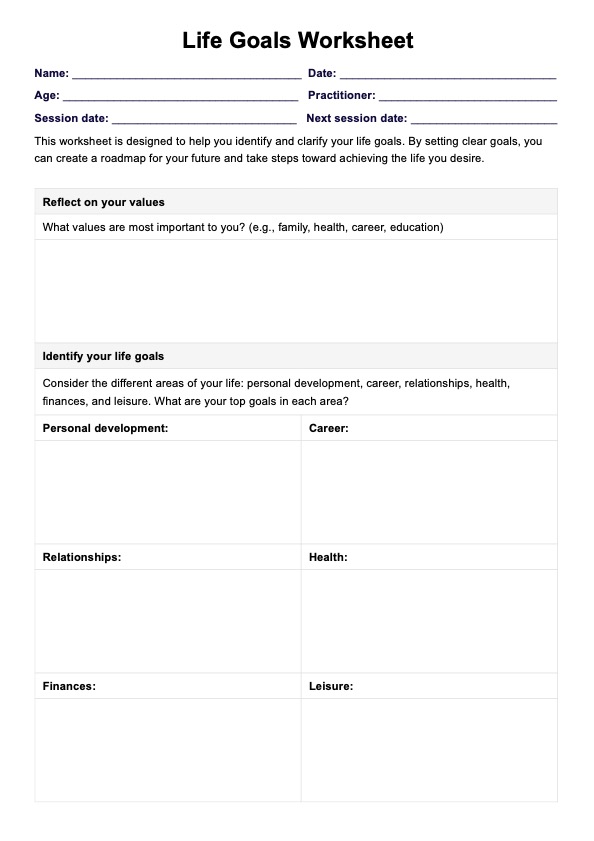Goals act as a roadmap for life choices, guiding decisions and actions toward achieving desired outcomes and aligning with personal values and priorities.

Life Goals Worksheet
Discover the Life Goals Worksheet – a powerful tool to help clients set and accomplish meaningful goals that promote personal growth.
Use Template
Life Goals Worksheet Template
Commonly asked questions
Common examples of life goals include achieving career success, maintaining good health, building strong relationships, and attaining financial stability.
To set personal goals in daily life, identify priorities, break down larger goals into manageable tasks, set deadlines, and regularly review and adjust plans as needed.
EHR and practice management software
Get started for free
*No credit card required
Free
$0/usd
Unlimited clients
Telehealth
1GB of storage
Client portal text
Automated billing and online payments











